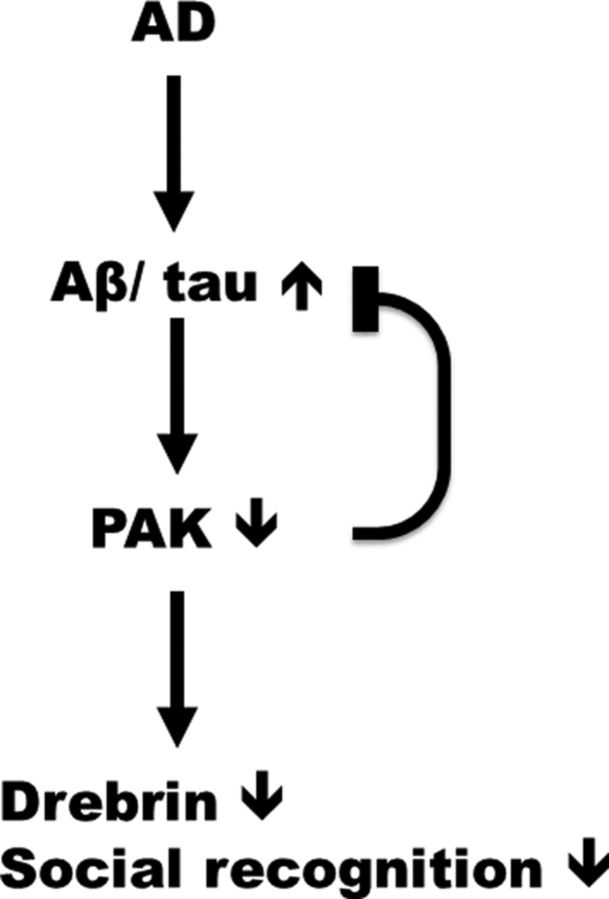Figure 7.
Counterbalancing the loss of PAK might be of therapeutic value in AD. Late during AD progression, and not in individuals with mild cognitive impairment, the levels of PAK decrease in the brain in close relationship with accumulation of tau neuropathology and declining cognitive performance. In the 3xTg-AD mouse model, expression of transgenes leading to Aβ and tau pathologies induced a global decrease of PAK. Conversely, genetic deactivation of PAK in the 3xTg-AD mouse led to a transient decrease in insoluble Aβ and tau. This suggests that PAK decrease is a consequence rather than a cause of Aβ and tau neuropathologies. However, inactivating PAK in the brains of 3xTg-AD mice generated an animal model closer to AD by decreasing drebrin levels and social recognition capacities. Overall, our study supports the hypothesis that a therapeutic intervention aimed at increasing PAK activity may improve AD symptoms without correcting Aβ and tau pathologies.

